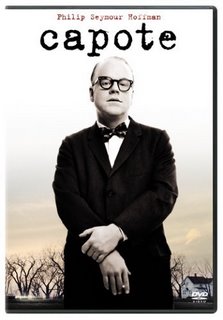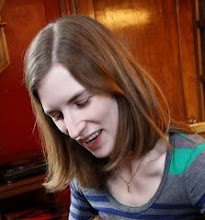Perspective in Writing
There are instances of raw perspective in each person’s life. A friend dies. A family member goes ill. A natural disaster destroys a home. And for a time (an hour? day? year?), everything seems to come sharply into focus. What matters is that person you love. What matters is your own mortality, and everything you’ve yet to accomplish. What does not matter is the hundred other small things that usually matter—a prejudice, a pair of boots you want to buy, a misspoke phrase that a friend may have taken the wrong way. Who cares? you say. There is so much more to life that is so much more important.
I sometimes wonder how it would effect my writing if I could hold onto those moods after a disaster has passed. Perhaps I would delve into an unproductive melancholy. Perhaps I would be opened to a brand new world of possibility …
Dark vs. Light
 There has been a lot of discussion lately centered around darkness. (See Theresa’s blog, as well as Paula’s.) This reminds me of a conversation I had some months ago when several friends were visiting my house and began to look through the books on my bookshelf. A question came up—“Erin, do you have any books that aren’t depressing?”
There has been a lot of discussion lately centered around darkness. (See Theresa’s blog, as well as Paula’s.) This reminds me of a conversation I had some months ago when several friends were visiting my house and began to look through the books on my bookshelf. A question came up—“Erin, do you have any books that aren’t depressing?”
I had never thought of my books as “depressing” before, so it was interesting to hear this label given to them. And when I started to think about it, I understood why someone might consider them so. It is true that in many books I read, sad things happen. My shelf is heavily populated with Margaret Atwood books, for example. Her work tends to deal with dark themes. A Handmaid's Tale tells the story of a society overthrown and built up again on a base of hypocrisy and fear. Many scenes are excruciating in their detail of frustration, anger, hopelessness. The Blind Assassin is also fat with frustration and the darker deeds in life, as is Lady Oracle and Surfacing.
Atwood’s work may be an extreme example because there is a lot of dark, and perhaps not a balanced amount of light. But I think each of these novels expresses truth in one form or another. If these books are depressing, it’s because life is often so.
Many other books that rest on my shelf have periods of despair broken and surrounded by moments of joy, of light. It may be true there is more sadness than joy in these books, but I wonder if the joy would mean a thing if the sadness wasn’t abounding. As in my life, where it seems my highest highs immediately follow my lowest lows, in these books, light shines all the more brightly when it comes out of a blanket of darkness.
And I don’t think the “light” that balances dark has necessarily to do anything with joy. It can be as simple as a reprieve, or a moment in which someone is utterly human in such a way that one knows an undeniable instinct has kicked in. In T.C. Boyle’s Tortilla Curtain, there is a point near the end of the novel where two antithetical characters come together in a desperate moment (I’m being vague because I don’t want to give anything away, in case you haven’t read this and want to) and human nature kicks in to produce a glorious light. It is not a cheery scene, and the overall outcome is not light, but that moment is pure and beautiful—it helps to balance out so many awful things that have been done earlier in the novel.
The other thing I find interesting about the balance of light and dark, in literature as well as in life, is that light for one is often dark for another. Happiness and accomplishment for one almost always translate into sadness and disappointment for another. When I land a job I’ve been vying for, there are a handful of others who didn’t get it. When I find a $20 bill on the ground, someone else must have lost it. In Memoirs of a Geisha (which I’ve just finished reading), when the dreams of the protagonist geisha are realized, the dreams of another geisha are dashed away. I find this balance unbelievably fascinating. It’s something I’d like to explore more in my writing.Now, I think that when my friends were talking about “depressing” books vs. “non-depressing” books, they were likely talking about “light” (i.e. “quick read”, “pulp”, “beach”) books. Every so often I still do indulge in a book that I know will mean little to me just because I don’t feel like thinking about much. But I find that the more I read my “depressing” books, the less patience I have for any book that doesn’t contain a truth (through the use of dark and light and whatever it takes) about human nature, life, society, the world. Once you’ve tasted a book with some guts, grime, darkness, it begins to seem like a waste of time to read anything less.
Where I’ve Been (In Three Parts)
 The past weeks have flown by at a manic pace. Each day seems to start and end without giving me even a fighting chance to accomplish everything I’d like to accomplish. I’ve missed blogging, and reading everyone else’s blogs! I think I’ve caught up on nearly all of my blog reading, and since I’m not inspired to write anything too in-depth today, to help me catch up on my blog posting I’ll instead explain what I’ve been up to.
The past weeks have flown by at a manic pace. Each day seems to start and end without giving me even a fighting chance to accomplish everything I’d like to accomplish. I’ve missed blogging, and reading everyone else’s blogs! I think I’ve caught up on nearly all of my blog reading, and since I’m not inspired to write anything too in-depth today, to help me catch up on my blog posting I’ll instead explain what I’ve been up to.
Part 1: Work (and excuses)
Work has taken more time than usual lately and, more importantly, more mental energy. Coming into work for 8 hours each day for a moderate pace is one thing; coming into work for 8 or 9 hours each day for a hectic, harried pace and a list of responsibilities and worries that I carry home with me in the evening is a different thing all together. I know it’s only an excuse (cite: Charles Bukowski’s poem “Air and Light and Time and Space”—visit this web site to read it: http://www.crownfarmer.com/333/dirt/jenkinsbuk.html), but it is difficult to create anything when that mental exhaustion sets in. I’m working to regain my balance.
Part 2: Biking (and raising money)
At the very end of last summer, I bought a bicycle. That may sound like a simple purchase, but I see it more as the beginning of a love affair. My bike is red and white and absolutely fabulous. Last fall, before the weather began to chill, I rode and rode the bike trails in the Cincinnati area. On unseasonably warm days this winter, I broke it out of its garage hibernation for rides. Now at last, the weather has begun to improve again, and I’ve decided to “bike with a purpose.” I’ve signed up for the Tour de Cure, to raise money for the American Diabetes Association. If you’d like to support the cause (or just see a cheesy picture of me on a bike), you can visit this web site: http://main.diabetes.org/site/TR?px=2781023&pg=personal&fr_id=3245&et=lLfM8aVJzFZLEtk5eBwmUA..&s_tafId=42172. Since I plan to bike 30 miles, and haven’t biked 30 miles straight since middle school, I’m training for this event by doing two longish bike rides each week. A good cause, good exercise, and a good time—but also something that makes my days and weeks zip by!
Part 3: Books & Movies (those that engage and linger)
Last weekend, when at last my pace slowed, instead of catching up on all of the things I could have (and perhaps should have), I instead started to read Arthur Golden’s Memoirs of a Geisha. I’ve wanted to read this book since I saw the first preview for the movie of the same name that came out near the end of last year. The images of dancing and passion, the costume and color, were so appealing to me that I wanted to see the movie, but more so wanted to experience the story, which is generally best done (at least in my experience) by reading the book. Once I’d started the story, I just couldn’t stop reading. I spent a portion of Friday evening, much of Saturday, and a portion of Sunday in the mind of a young geisha, dealing with the hardships and glories of her life.
In the past month, I also experienced two very good movies that got me thinking. The first is American History X. The environment of intolerance, as well as the eventual growth of the characters presented in this movie linger.
The second movie (which I started but never completed a blog entry on the day after I saw it in early March) is Capote. I find that my mind keeps wondering back to this film, as well, and in particular to one question that came to mind as I watched it.
The movie brings a viewer through Truman Capote’s journey as he wrote In Cold Blood, the classic that more or less created the “nonfiction novel” genre. In an epigraph at the close of the film, it says that Capote never finished another novel after In Cold Blood. It makes me wonder—why? Was the experience of writing that novel too much for him to bear, too emotionally tasking for him to think about writing another novel? Did he run out of topics to which he wanted to devote the time and energy to write a novel? Was it the alcoholism? Why would you stop writing novels, when you were at the very top of your game? I am intrigued and somewhat bothered. At this point, I can’t imagine a point in my life when I would stop writing. I wonder what could bring that on. (This is not to say that he stopped writing entirely. I have no idea if he did so! If anyone does know, I’d love to hear!) Another player in the film—Harper Lee—also drove this question home for me. She wrote To Kill a Mockingbird, published it to great success, and then never published another book.
My question is: Is there often a point when a writer simply stops writing? And if so, why?



